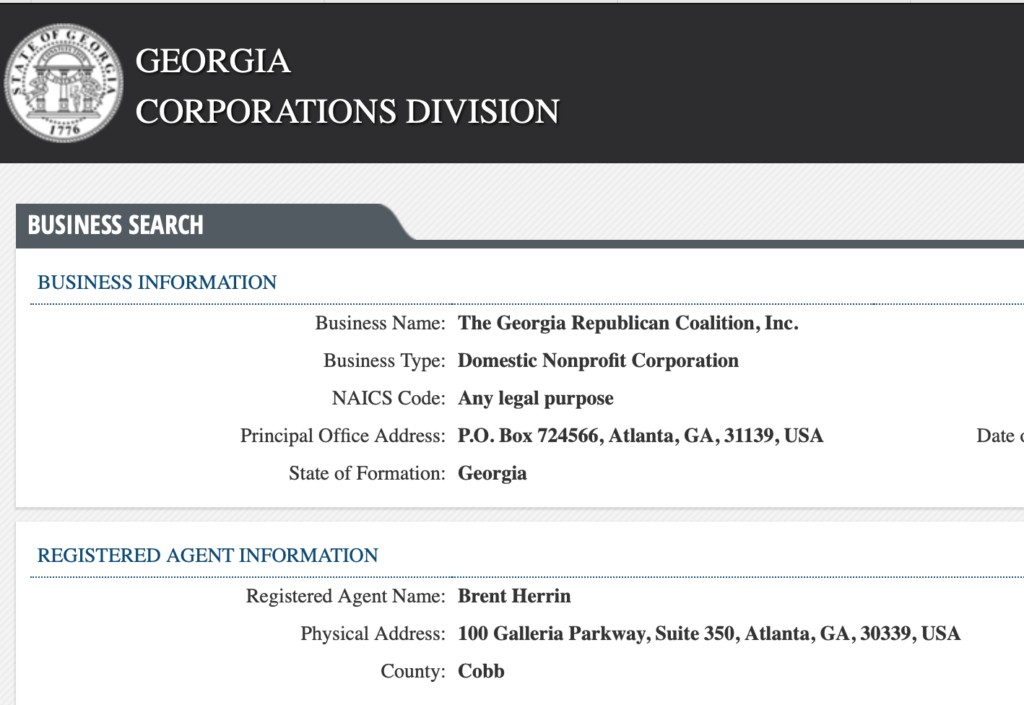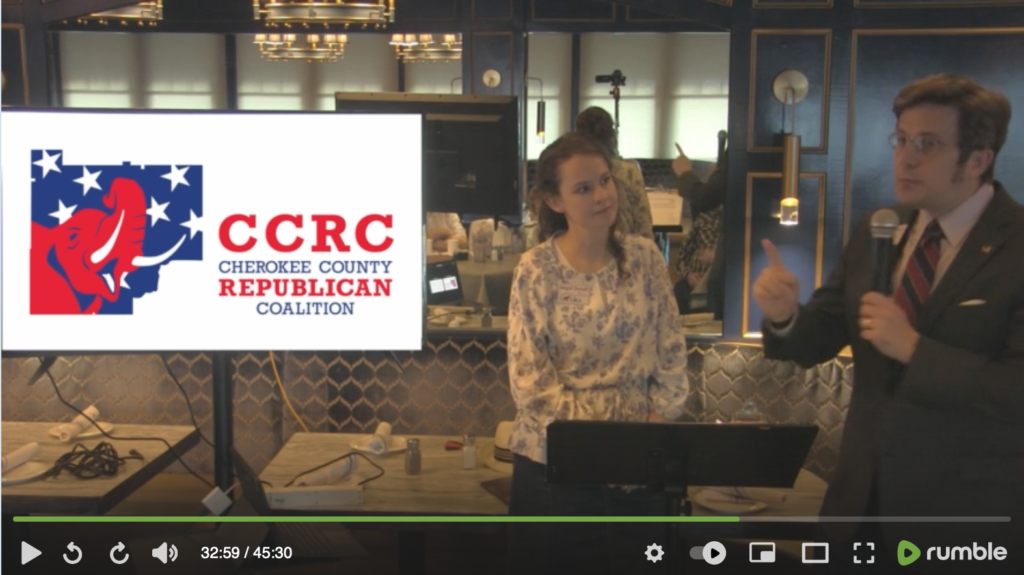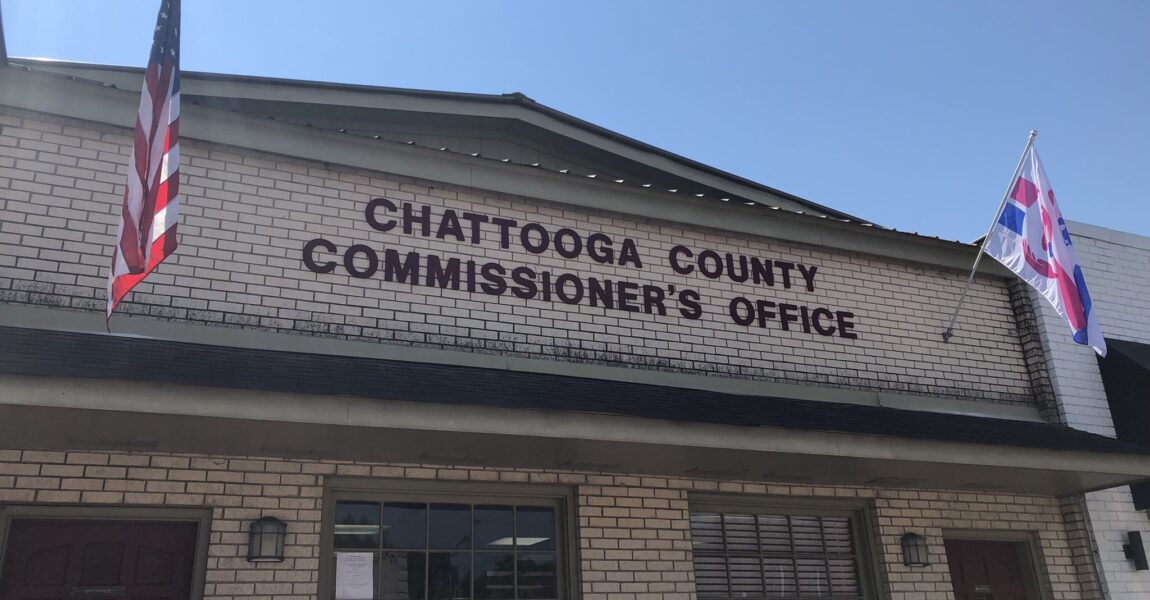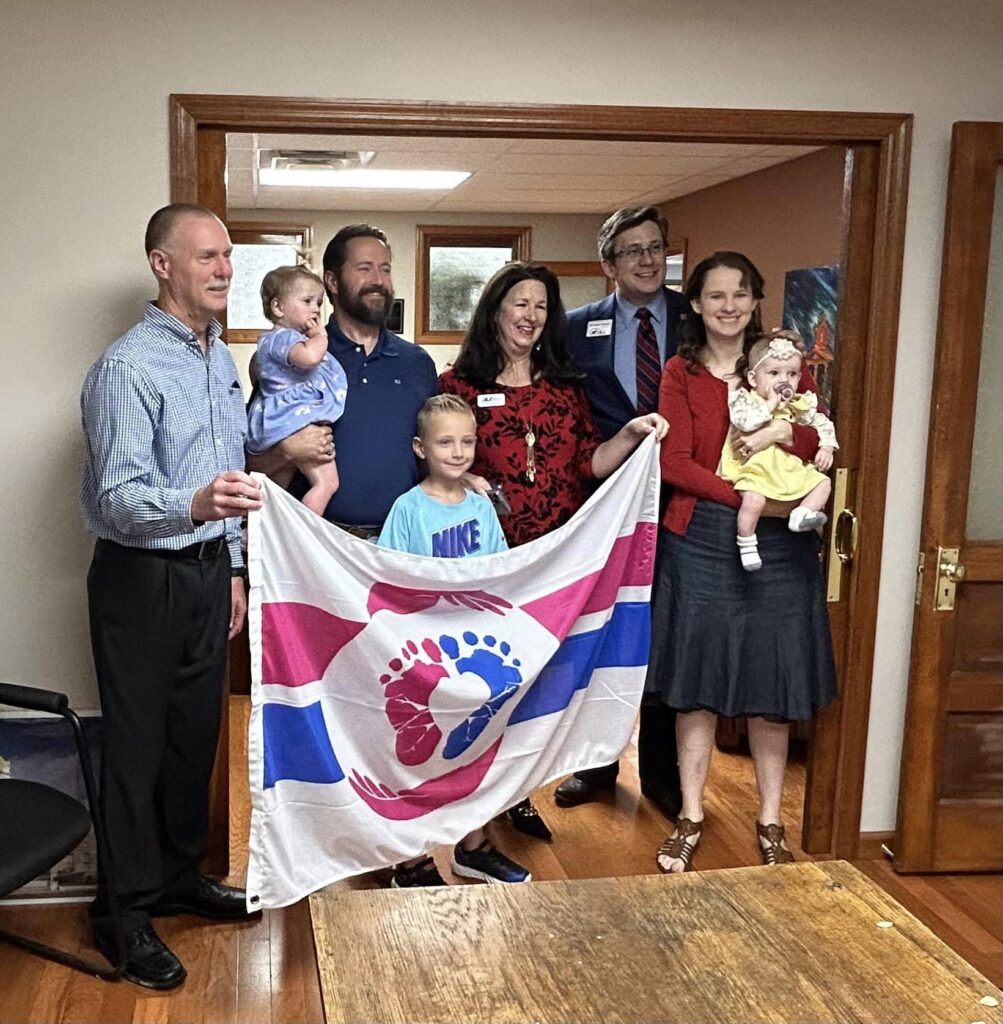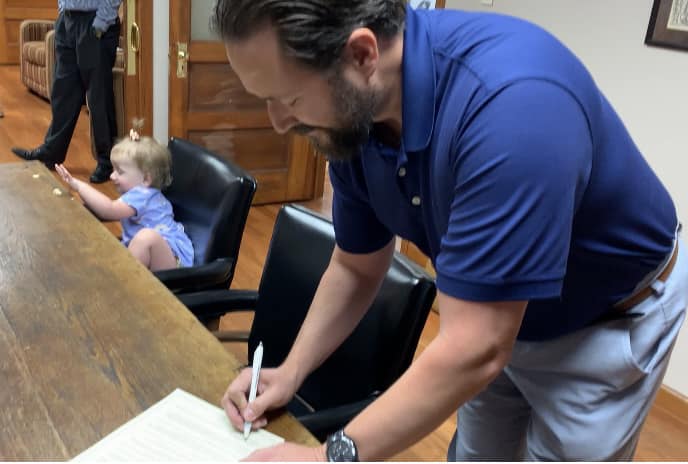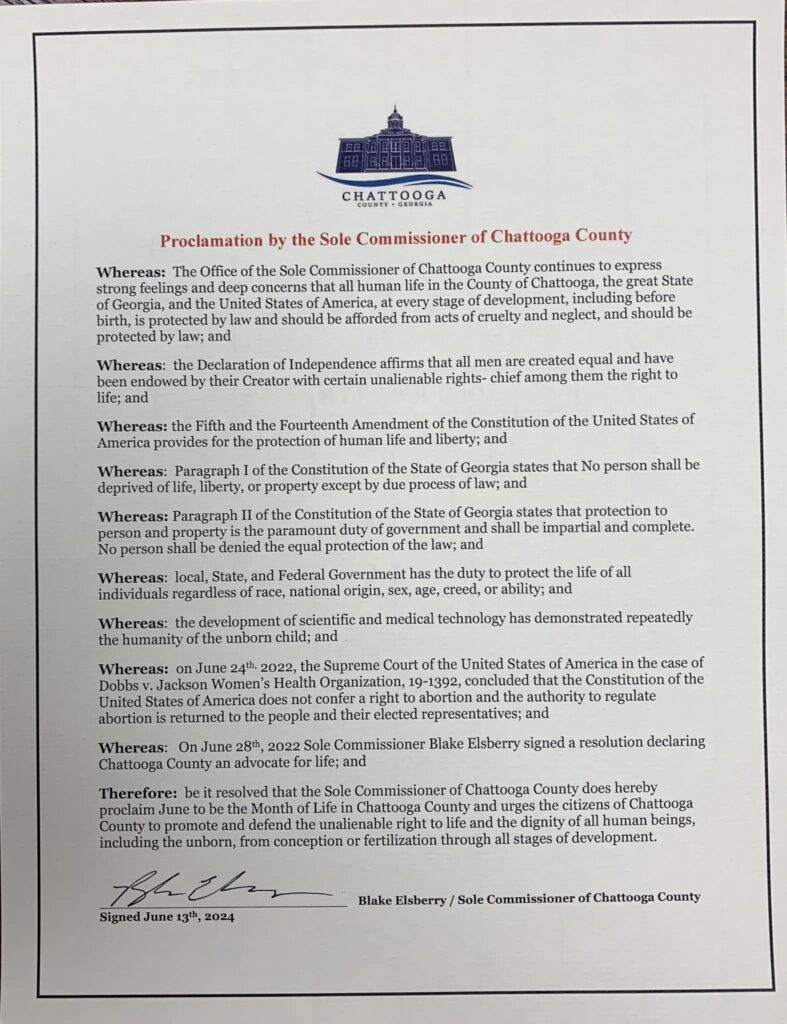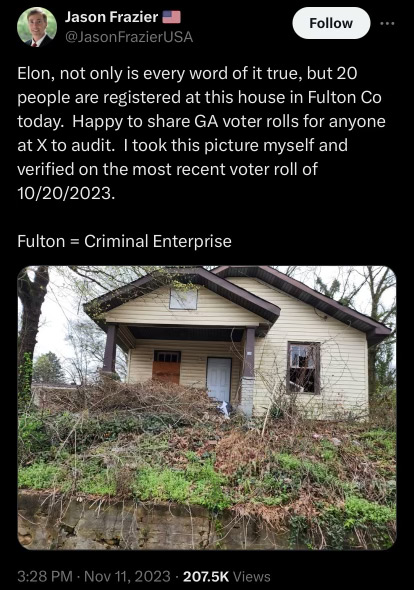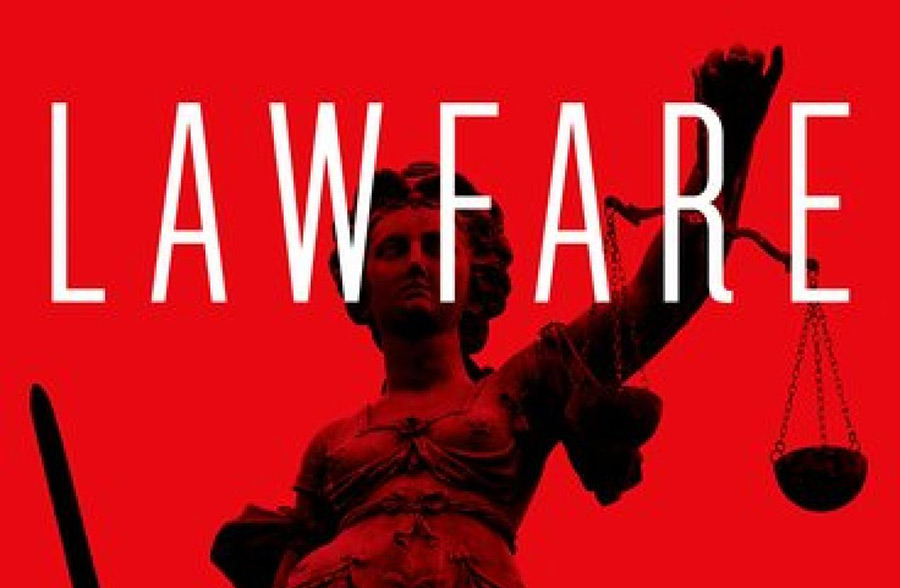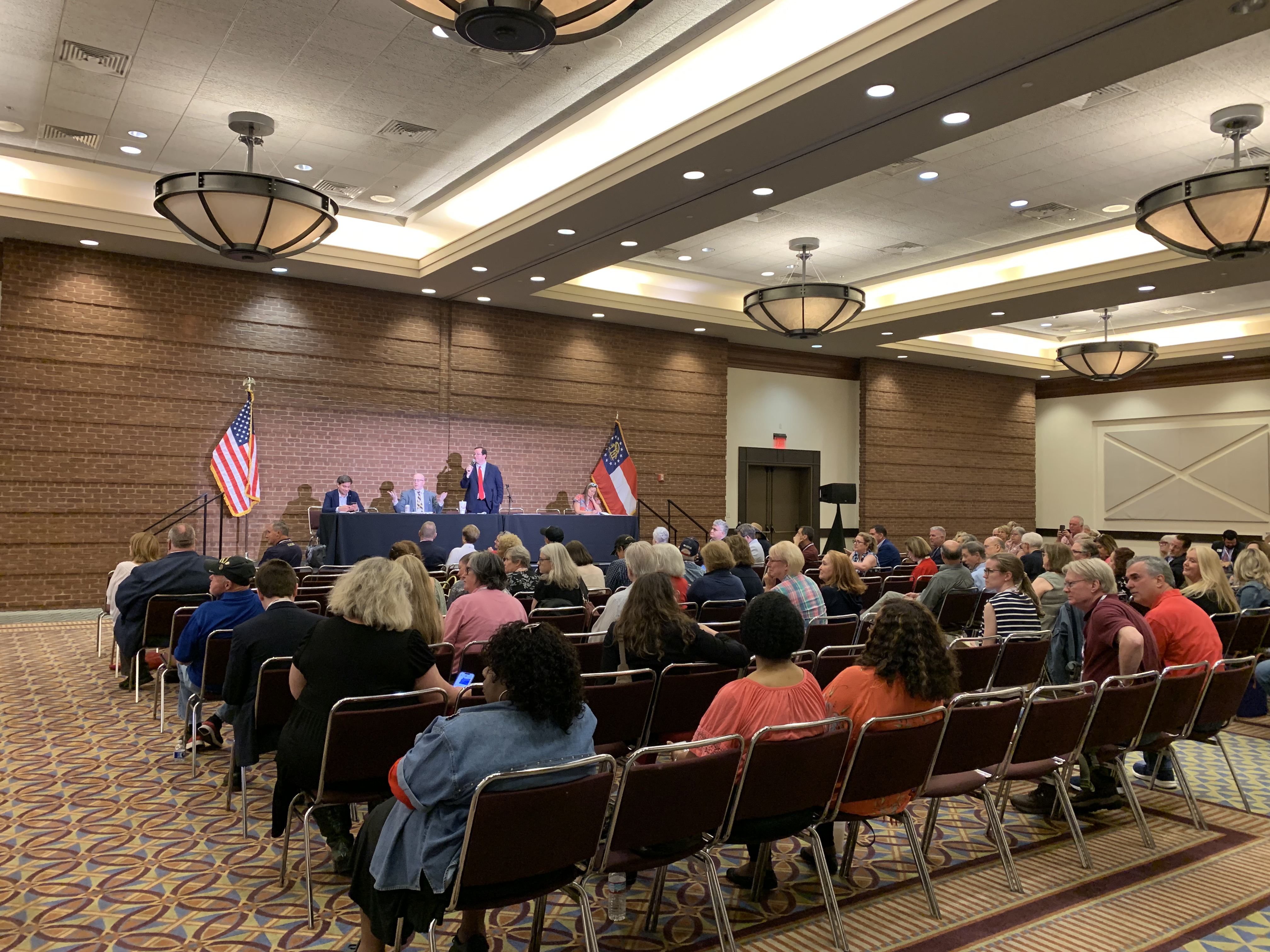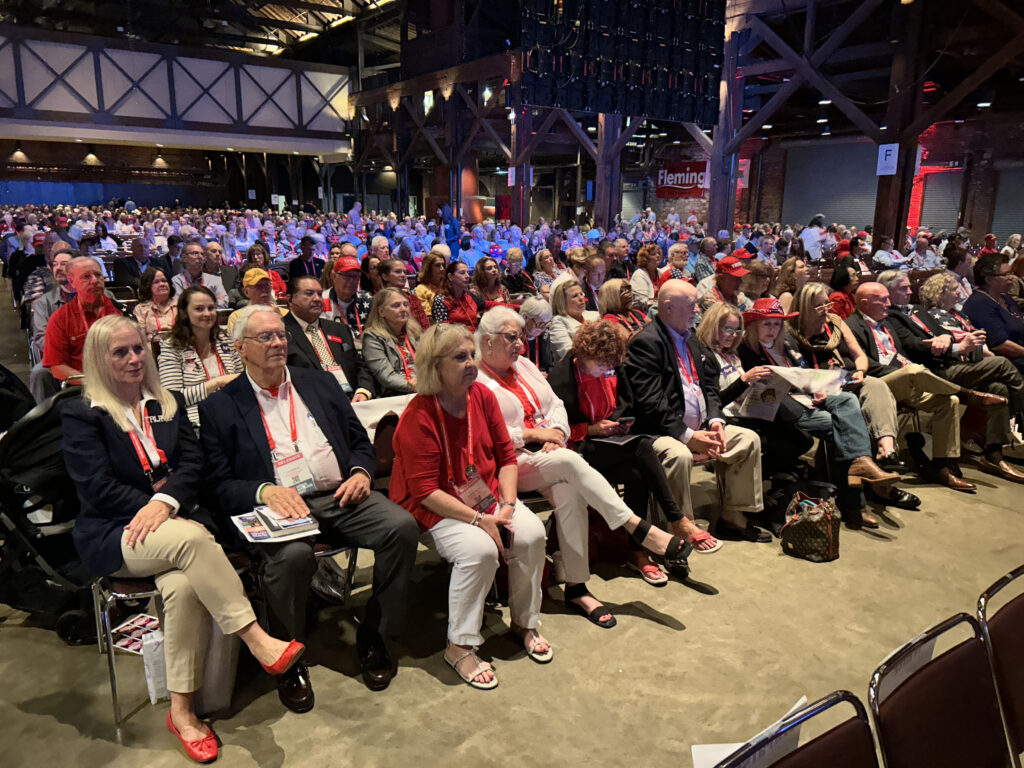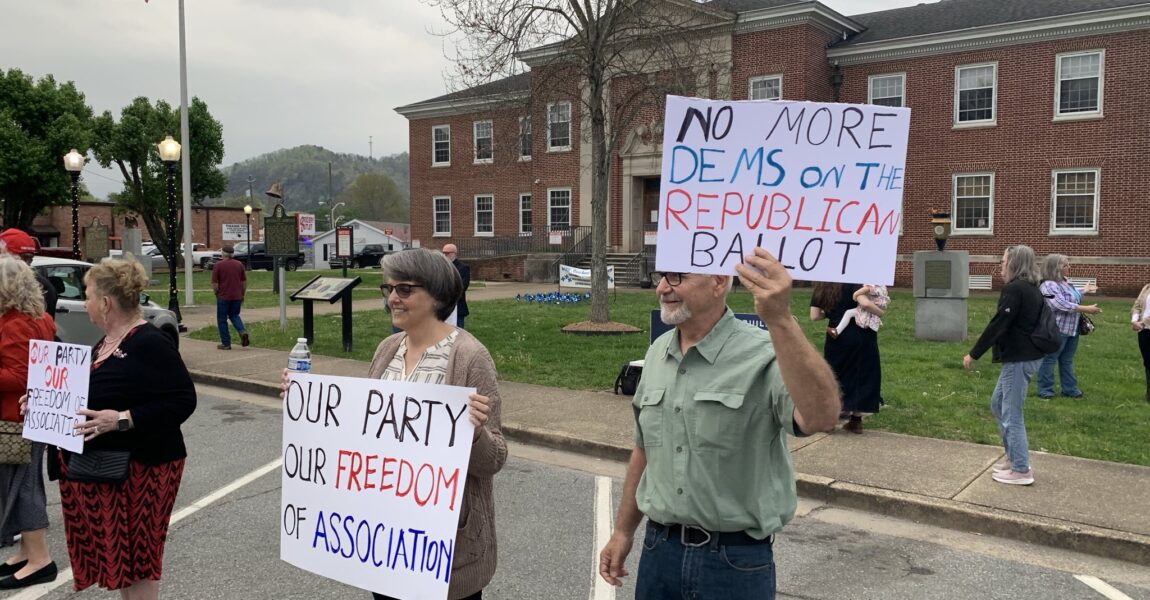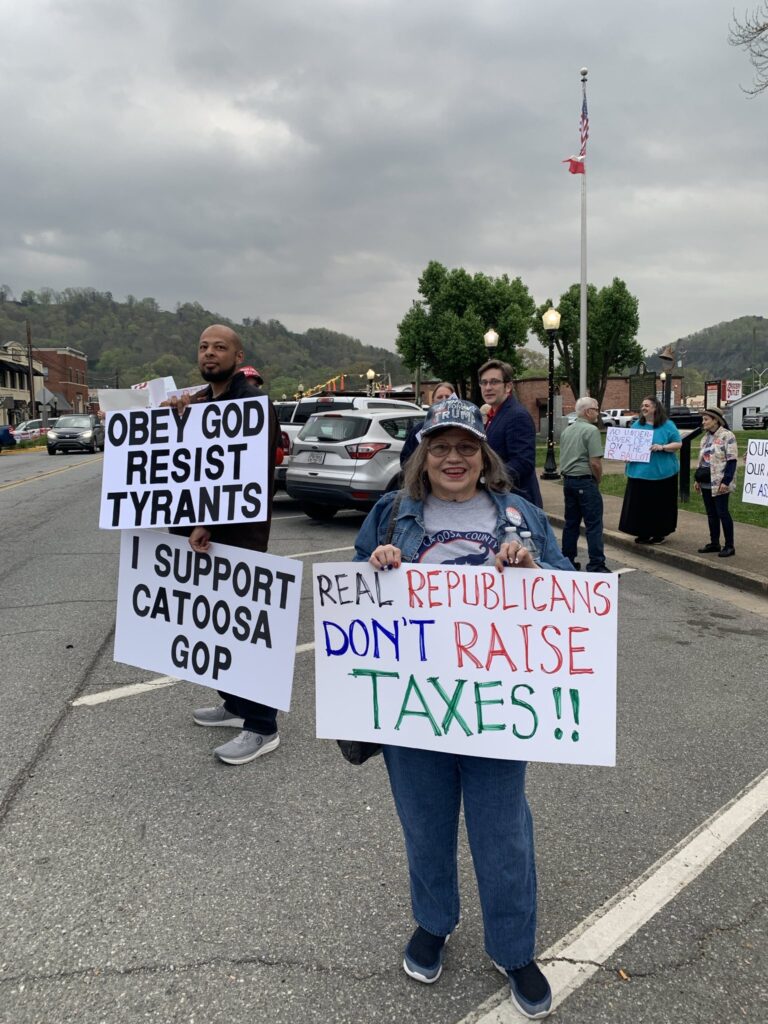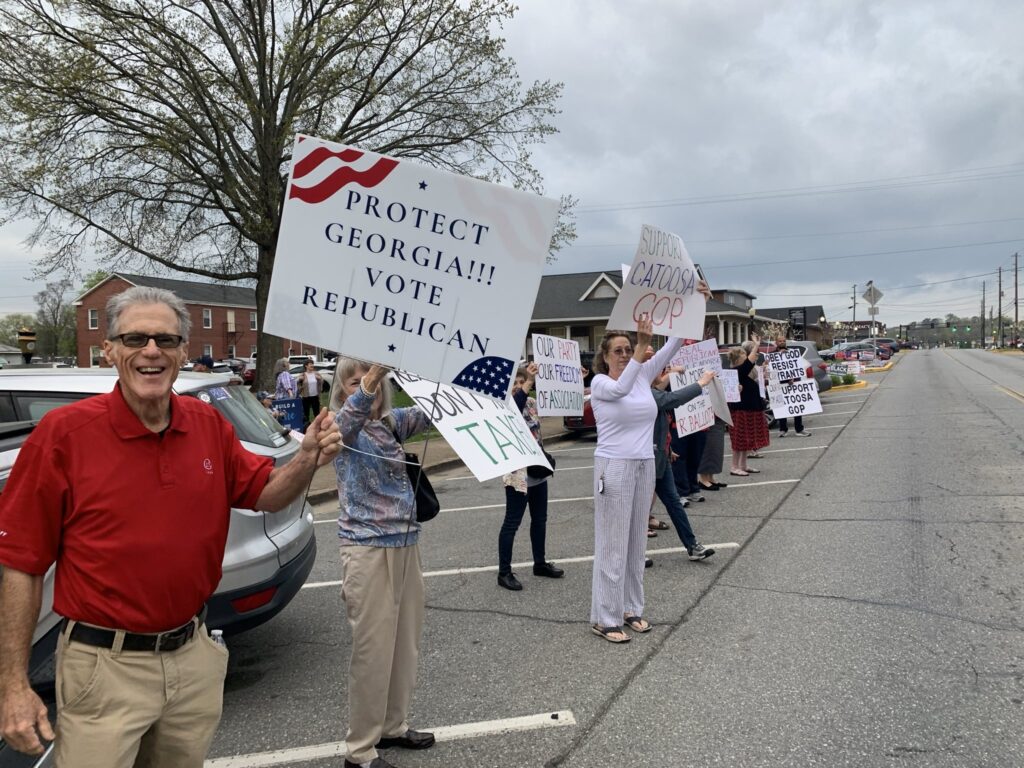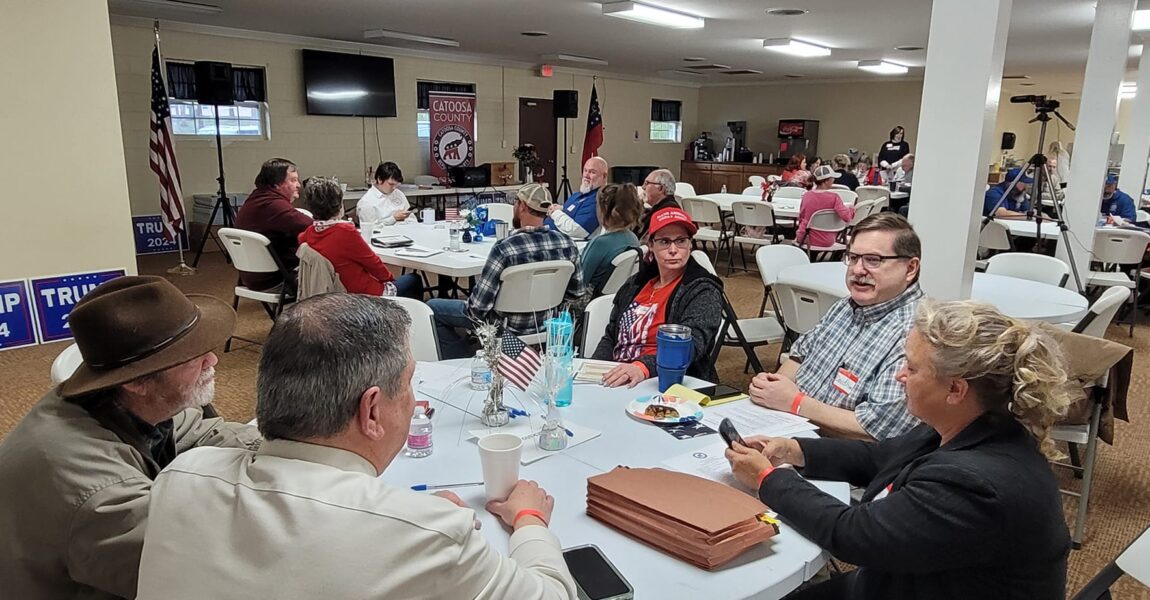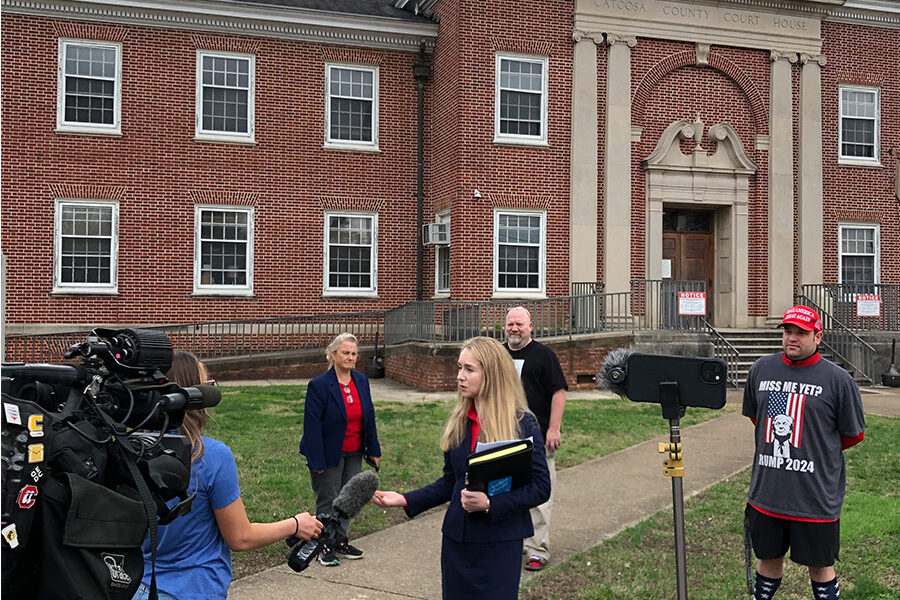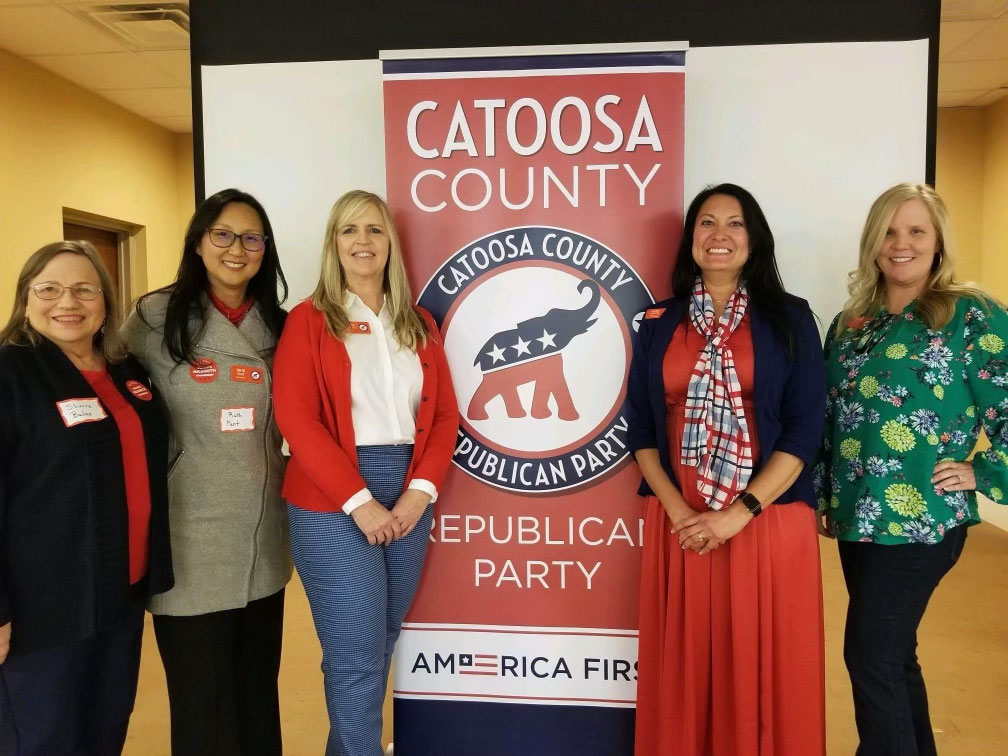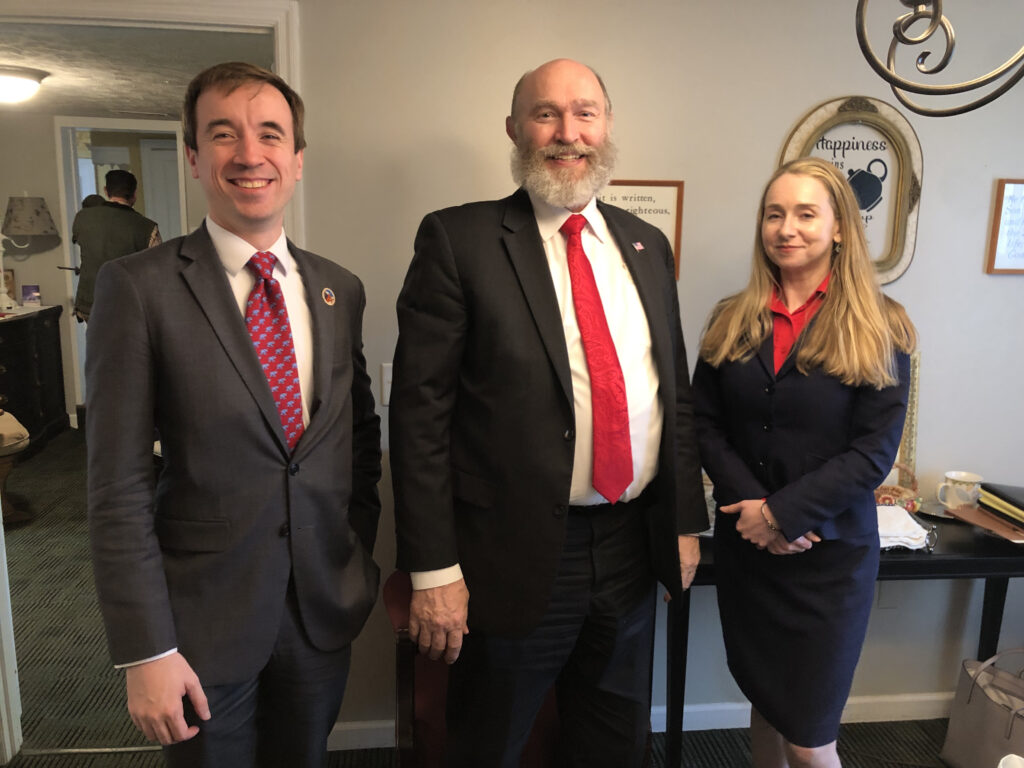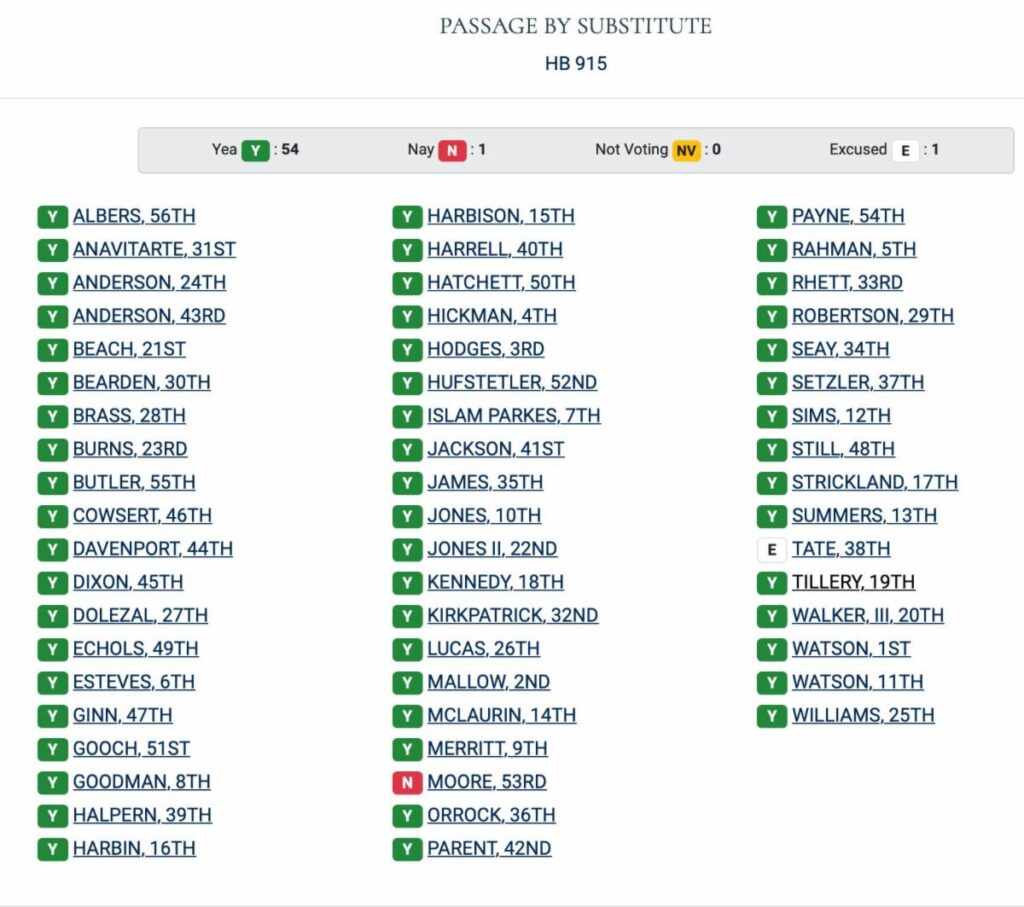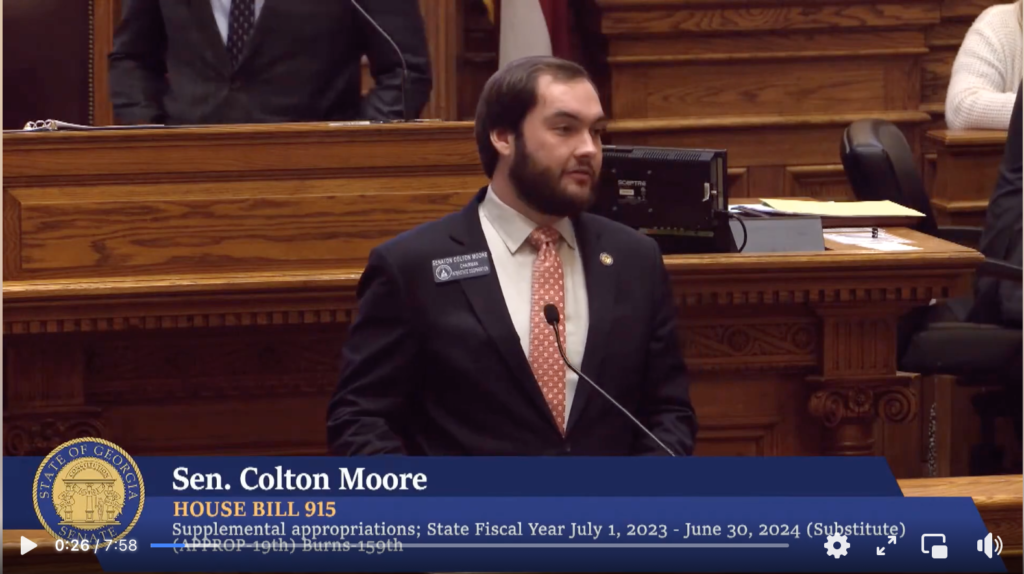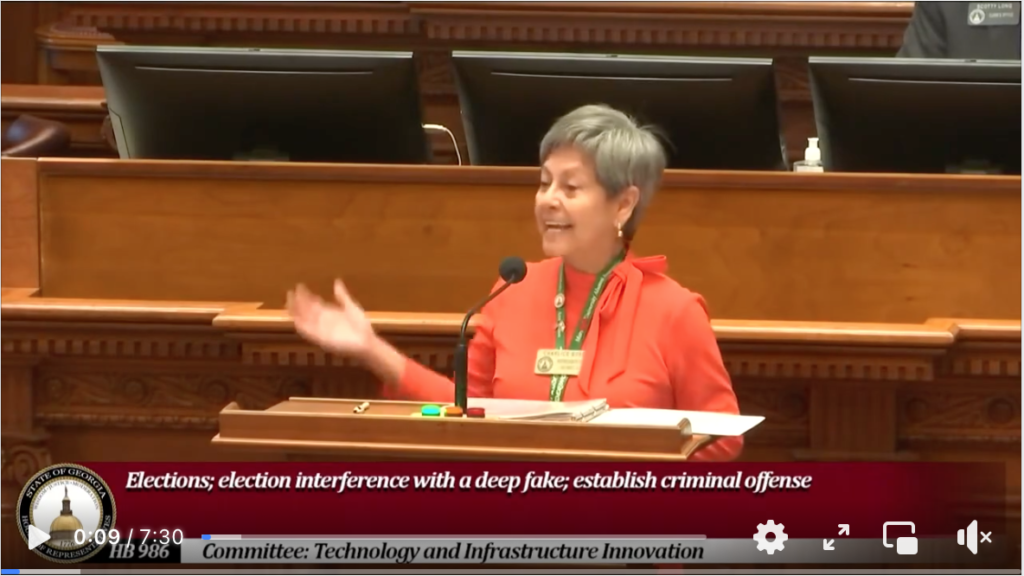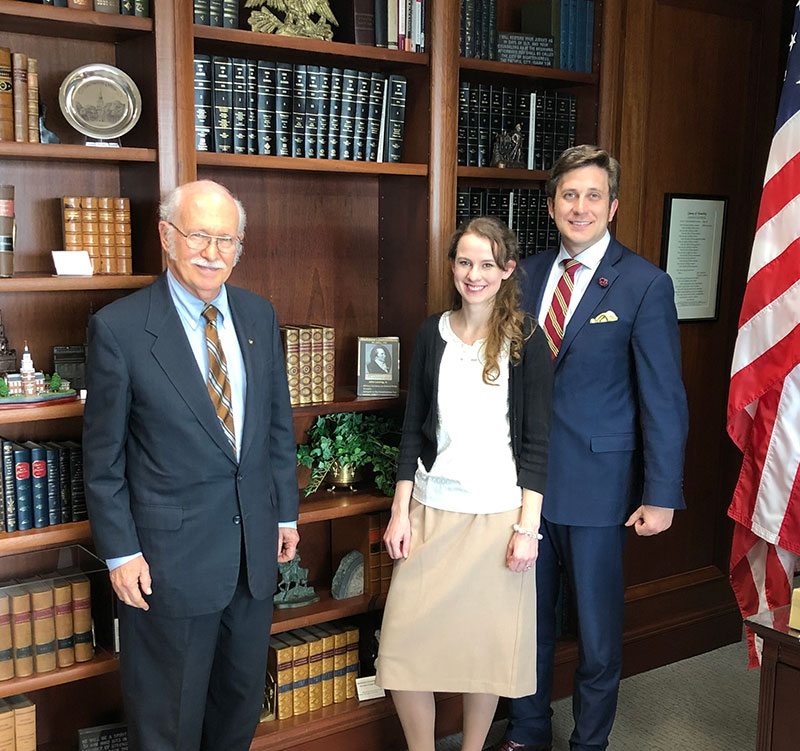Brent Herrin & “Republican Coalition, Inc.” Join Lawsuit Against Catoosa GOP in Candidate Qualifying Case
This article was written as a collaboration of GRA members involved with our newsletter team without contribution from any attorneys involved in the litigation.
Woodstock, GA — Attorney Brent Herrin waited until last week — two days after the Republican Primary Runoff (when all factions within the GOP are supposed to come together and “unify” for the general election) — to file an amicus brief on behalf of his “Georgia Republican Coalition, Inc.” against his fellow Republicans running the Catoosa County GOP organization. In it, he had the audacity to compare the retired grandmothers who volunteer their time to keep the Catoosa GOP operating to “the Guardian Council of the Islamic Republic of Iran.”

The all female Catoosa GOP leadership in March exercised their legal right, protected by the “freedom of association” clause of the 1st Amendment of the U.S. Constitution and parallel provisions within the Georgia State Constitution, to not qualify applicants for the Republican ballot who had a track record of doing many things contrary to the principles and policies of the Georgia Republican Party Platform. This right has been upheld repeatedly by the U.S. Supreme Court in recent decades. The Chattooga County Democrat Party even exercised this right ten years ago against an incumbent candidate who tried to re-qualify as a Democrat on the ballot.
The four candidates for county commission who the Catoosa GOP refused to qualify had done such things as repeatedly vote to raise taxes, take away the rights of citizens to raise chickens, and engaged in bullying of citizens protesting at commission meetings. One of them, Vanita Hullander, even publicly endorsed a local Democrat for office. Hullander was defeated last week in the Republican Primary runoff.
When “Republican Coalition, Inc.” organizations started popping up in different communities last year, starting in Cherokee County, many grassroots activists expressed alarm about why they felt the need to start such organizations. The organizations appeared to emerge first in communities where the grassroots had taken over leadership of local GOP organizations, wresting control away from the Establishment, oriented to the power at the Gold Dome. They appeared to be part of an effort to replace these grassroots-run organizations and delegitimize them. Some new activists have joined the “Coalition” mistakenly assuming they were the official GOP organization.
In particular, concern was expressed about how the “Coalition” accepted new members and whether those members had any vote controlling the activities of the organization. Unlike the official GOP organizations and the GRA, it appears the Coalitions are run top-down by the owners of the corporations. According to one Coalition member, Brent Herrin (who is the registered agent of the incorporated “Coalitions”) did not present the idea of filing an amicus in this case to them for discussion or a vote before it was filed — unilaterally. The Coalitions, thus, appear to operate without accountability.
This latest action by Herrin and company joining the lawsuit contradicts his repeated statements of reassurance that he and the Coalition have not been seeking to undermine the grassroots within the Republican Party of Georgia.
In addition to leading the “Republican Coalition, Inc.” and its various local chapters (nicknamed the “Whiners and Losers Club” by the North Metro RA chapter), Brent Herrin was also elected last year to the GA GOP State Committee on behalf of the 11th District GA GOP, which encompasses part of Cobb County, most of Cherokee County, and all of Bartow, Pickens, and Gordon counties. As a result of this betrayal and violation of his promises, we are calling on the grassroots in the 11th Congressional District GA GOP organization to vote to remove Mr. Herrin from any position of leadership within the GA GOP. He clearly cannot be trusted.
Herrin and company want to ensure that the Republican Party stands for nothing and is a meaningless label that anyone can purchase, regardless of their belief system.
The word “amicus” is the Latin word for “friend” and is the same root from which Spanish gets the word “amigo.” An amicus brief, thus, is an argument written by someone who is not a party to the case, but who wants to provide their input to the court and share outside information. The RINOs in Catoosa County and the Cherokee-based Republican Coalition, Inc. are certainly amigos, no doubt about it.
In the brief, Herrin argues that a candidate’s payment of the fee, and satisfying the procedural rules of the party are the only legal requirements for a candidate to appear on the ballot of their choice, and that Catoosa GOP’s process wasn’t actually procedural.

But what does the word “qualify” even mean if no one can be denied? Why call it a “qualifying” process if the only requirement for getting a place on the Republican ballot is that you have paid the money? Why not call it a “payment process” instead?
The word “qualify” implies that some who apply may not be approved, and others will. If it was an automatic matter of administration, a more apt term would be utilized. The Catoosa Republican Party is merely trying to enforce a minimum standard of adherence to basic GOP policy positions, and Herrin apparently thinks that is wrong. If Herrin is a true Republican, who shares a Republican belief system, why would he oppose efforts to ensure only true Republicans are labeled Republicans? If he truly believes the Democrat program is harmful, why wouldn’t he be concerned about undercover Democrats running as Republicans in rural GA?
If candidates do not have to meet minimum standards, then the word “Republican” has become a completely meaningless term. Herrin may argue that “the Republican voters” should be able to decide who can qualify in the Primary elections, but Georgia has an open primary system which allows even Democrat voters to cast a vote in the Republican Primary, determining our nominees. On the other hand, “the Republican voters” do get to elect the leaders of their local GOP organizations, as they have done in places like Catoosa and Cherokee counties.
Crawford “Republican” Commissioners Appoint Democrat to Elections Board
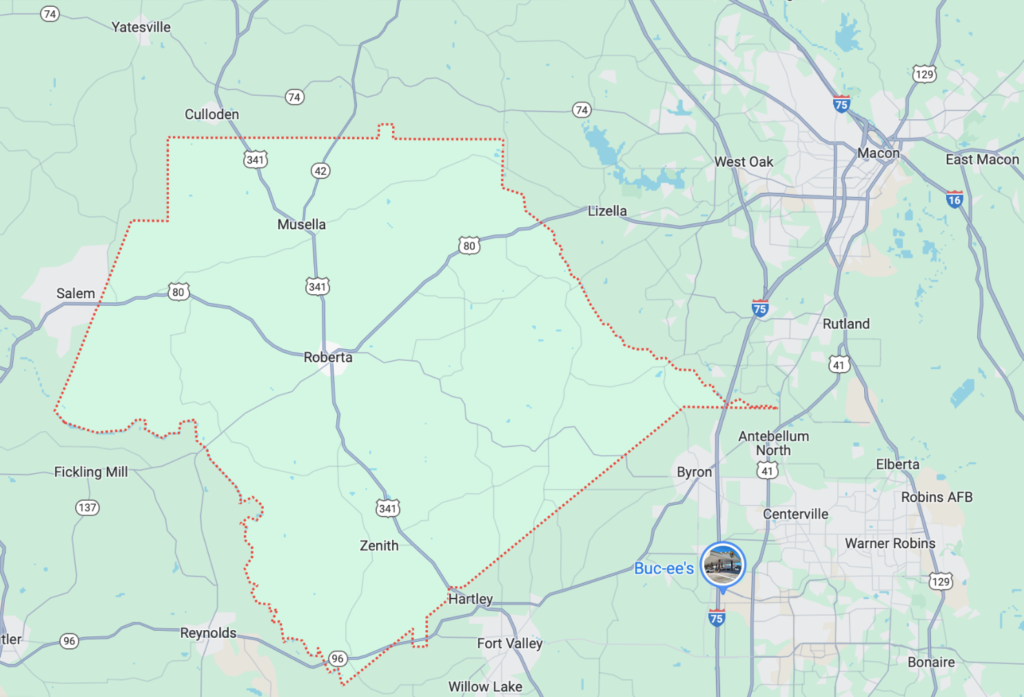
Crawford County GOP Chairwoman Janet Carter reported that three of the Republican Commissioners in her county just voted to put a Democrat (who was actively trying to start a Democrat Party organization in Crawford) on the county’s Board of Elections. They did so by replacing a Republican incumbent who was seeking re-appointment. Now the Crawford County Board of Elections consists of two Democrats and one Republican in a ruby-red Republican county! This is yet another example in Georgia of where the local county GOP would have good reason to deny these county commissioners from running for re-election in the Republican Primary — because they did not prioritize the interests of their own party ahead of the interests of the opposing party.
The fact that state law allows political parties to conduct qualifying, and that the signature of the elected GOP officers is required to make the qualification official, indicates that GOP leaders are allowed to exercise some judgment about who does and who does not qualify.
Even so, the four denied Catoosa Commission candidates took legal action attempting to force themselves on the Republican ballot, contrary to the Catoosa GOP’s procedural rules. That has led to two cases that are pending on appeal in both state and federal court. We expect that the court will eventually overturn a local judge’s actions to force the candidates on the ballot, contrary to the 1st Amendment.

